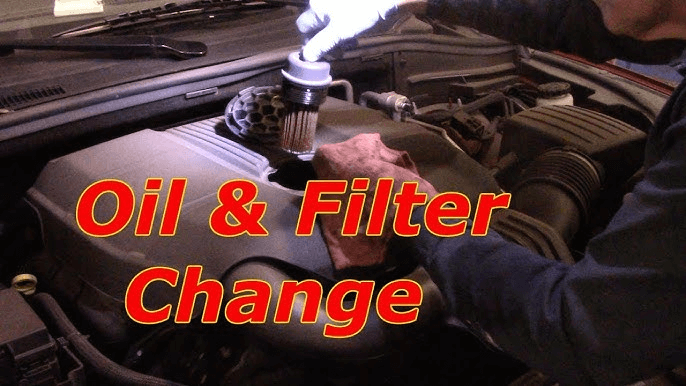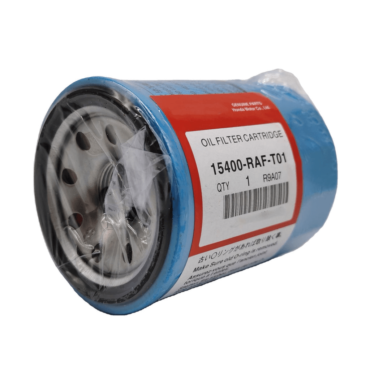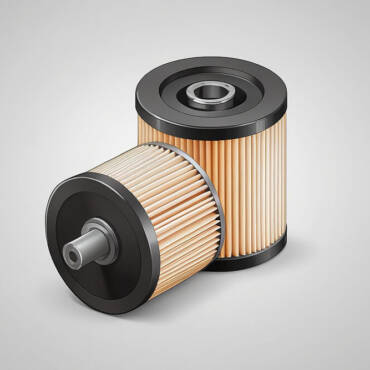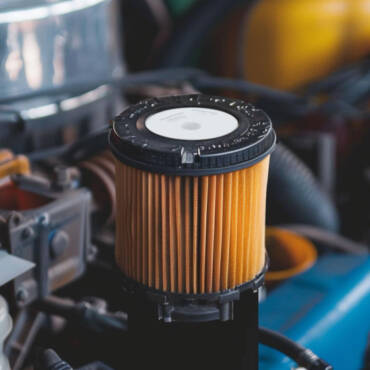Regular oil changes are critical to the health of your vehicle, ensuring it runs smoothly and efficiently. However, many car owners wonder: is it necessary to change the oil filter every time the oil is changed? This question has sparked a debate among car enthusiasts and mechanics alike, as some consider it essential, while others argue it may not be needed every time. Here, we’ll delve into why oil filters matter, how often they should be replaced, and the impact of skipping this simple step in routine car maintenance.
Understanding the Role of an Oil Filter
An oil filter plays a vital role in protecting your engine. As oil circulates through the engine, it gathers contaminants like dirt, metal particles, and debris, which can damage engine components over time. The oil filter traps these contaminants, ensuring clean oil flows through the engine and keeps it running efficiently. Without a functioning oil filter, your engine could suffer from buildup, overheating, and even premature wear.
Oil filters not only improve performance but also prolong the lifespan of your engine. A well-maintained oil filter can make a noticeable difference in vehicle performance, as it prevents the sludge and dirt from clogging up essential engine parts. For more insights into the types and benefits of oil filters, check out FilterPoint, where you’ll find comprehensive resources on car filter maintenance.
Why It’s Recommended to Change the Oil Filter with Every Oil Change
Most automotive experts recommend changing the oil filter every time you change the oil, and here’s why:
- Clean Oil Flow: When you change the oil but reuse the old filter, contaminants trapped in the filter may find their way back into the fresh oil. This reduces the effectiveness of the new oil and can lead to faster degradation.
- Optimized Engine Performance: A new oil filter ensures that the oil is effectively cleaned before it reaches the engine. Clean oil lubricates engine components more efficiently, resulting in better performance and fuel efficiency.
- Preventive Maintenance: Skipping the oil filter replacement can lead to clogging, reducing oil flow and potentially causing serious engine issues. Changing the filter each time ensures your engine remains protected and reduces the risk of future breakdowns.
While some may consider it unnecessary, replacing the oil filter is a cost-effective step in maintaining engine health, especially compared to the high costs of engine repair or replacement.
For more details on how oil filters impact engine longevity, visit FilterPoint, a trusted source for car maintenance advice.
When You Might Not Need to Change the Oil Filter Every Time
There are situations where changing the oil filter with every oil change may not be strictly necessary, particularly for newer vehicles or low-mileage cars. In cases where:
- You’ve Recently Changed the Oil Filter: If you recently changed both the oil and the filter, and your car hasn’t accumulated significant mileage, some may argue it’s okay to skip a replacement this time.
- High-Quality Synthetic Oil is Used: Synthetic oils generally have a longer lifespan and better performance in extreme conditions, meaning they’re less prone to contaminant buildup. Some car owners who use high-quality synthetic oil may choose to change the oil filter every second oil change, but this should be done with caution and consideration of vehicle usage.
- Minimal Driving in Clean Conditions: If you drive only occasionally or mostly in clean environments with minimal exposure to dust, dirt, or pollutants, your oil filter may not accumulate as many contaminants. However, even in such cases, it’s generally safer to replace the filter every oil change.
To understand more about oil types and their impact on filter performance, head to FilterPoint, where the experts share valuable insights on synthetic versus conventional oils.
Signs Your Oil Filter Needs Immediate Replacement
Even if you haven’t reached your next scheduled oil change, there are telltale signs that your oil filter might need immediate replacement:
- Oil Pressure Warning Light: If this warning light appears on your dashboard, it could indicate that the oil filter is clogged and restricting oil flow, which may lead to engine damage.
- Unusual Engine Noises: A clogged oil filter can lead to inadequate oil flow, causing components to work harder and produce unusual ticking or rattling noises.
- Dirty Exhaust Smoke: Dark or thick smoke from the exhaust could be a sign of an overworked filter that’s unable to keep contaminants out of the oil, resulting in incomplete combustion.
- Decreased Performance and Efficiency: If you notice a drop in engine performance or fuel efficiency, a clogged oil filter may be the culprit.
If any of these signs appear, it’s essential to replace the oil filter as soon as possible to prevent damage to your engine. For a guide on recognizing when your filter may need replacement, refer to FilterPoint.
Choosing the Right Oil Filter for Your Car
Selecting the right oil filter is just as important as changing it regularly. Different engines require different types of filters, and using the correct one ensures compatibility and optimal performance. Key considerations when choosing an oil filter include:
- Filter Material: Some filters are made from synthetic materials designed for better filtration and longevity, especially when using synthetic oil.
- Size and Fit: Each car model requires a specific filter size and design. Consult your vehicle’s manual or a trusted mechanic to find the correct filter for your car.
- Quality and Brand: High-quality oil filters from reputable brands offer better protection and are often worth the investment. Cheaper filters may not last as long or filter as effectively, leading to more frequent changes and possible engine risks.
For recommendations on top oil filter brands and types suited to various vehicles, FilterPoint offers helpful advice and product reviews.
Conclusion
While some argue that changing the oil filter with every oil change isn’t necessary, the benefits far outweigh any minor cost savings. By ensuring clean oil flow, improved engine performance, and reduced risk of long-term damage, regular oil filter replacements contribute to a longer-lasting, efficient engine. For those who prioritize car health and reliability, changing the filter with each oil change remains the best practice.




